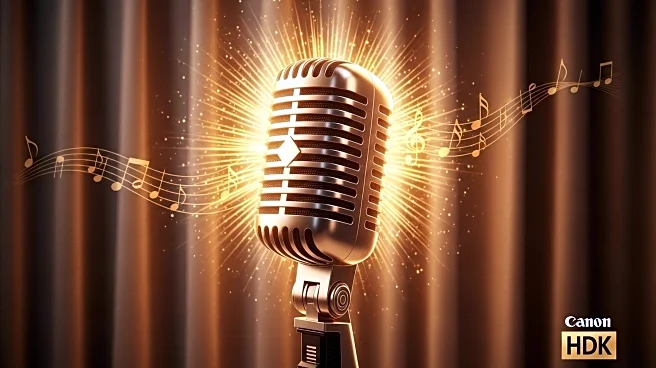What's Happening?
D'Angelo, a prominent figure in the R&B and neo-soul genres, passed away at the age of 51 due to cancer. Known for his groundbreaking albums such as 'Voodoo' and 'Black Messiah,' D'Angelo's music has been celebrated for its timeless quality and profound impact on American music. His work, characterized by a blend of ancient and futuristic sounds, has influenced the music industry and resonated deeply with audiences. Despite facing personal challenges, including disappearances and struggles with addiction, D'Angelo made a significant comeback with 'Black Messiah' during the Black Lives Matter movement, highlighting themes of social justice and resilience.
Why It's Important?
D'Angelo's contributions to music have left a lasting legacy, shaping the R&B genre and inspiring countless artists. His ability to blend different musical styles and address social issues through his work has made him a pivotal figure in American culture. His music not only entertained but also provided a voice for marginalized communities, particularly during times of social upheaval. The loss of D'Angelo is felt deeply within the music industry, as he represented the potential for artists to overcome adversity and create impactful art that resonates with societal movements.
What's Next?
The music industry and fans are likely to continue celebrating D'Angelo's legacy through tributes and retrospectives of his work. His influence on contemporary artists will persist, as his music remains a source of inspiration for those seeking to address social issues through art. The themes present in his work, such as resilience and social justice, will continue to be relevant in discussions about the role of music in societal change.
Beyond the Headlines
D'Angelo's career highlights the challenges faced by Black artists in America, who often have to work harder to achieve recognition and success. His story underscores the importance of supporting artists who push boundaries and address critical social issues. The cultural impact of his music extends beyond entertainment, serving as a catalyst for conversations about race, identity, and justice in America.









